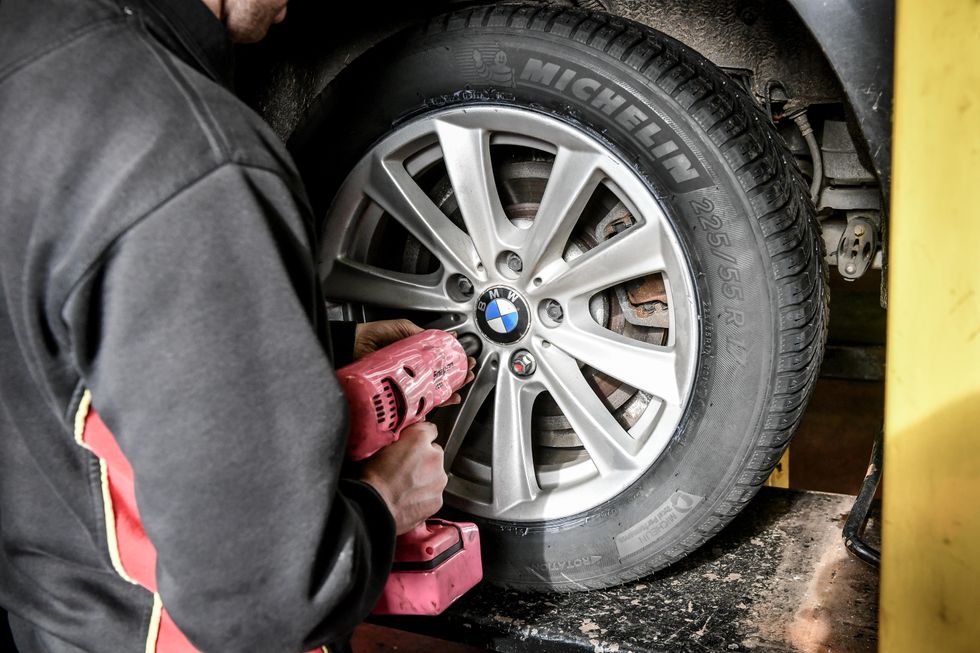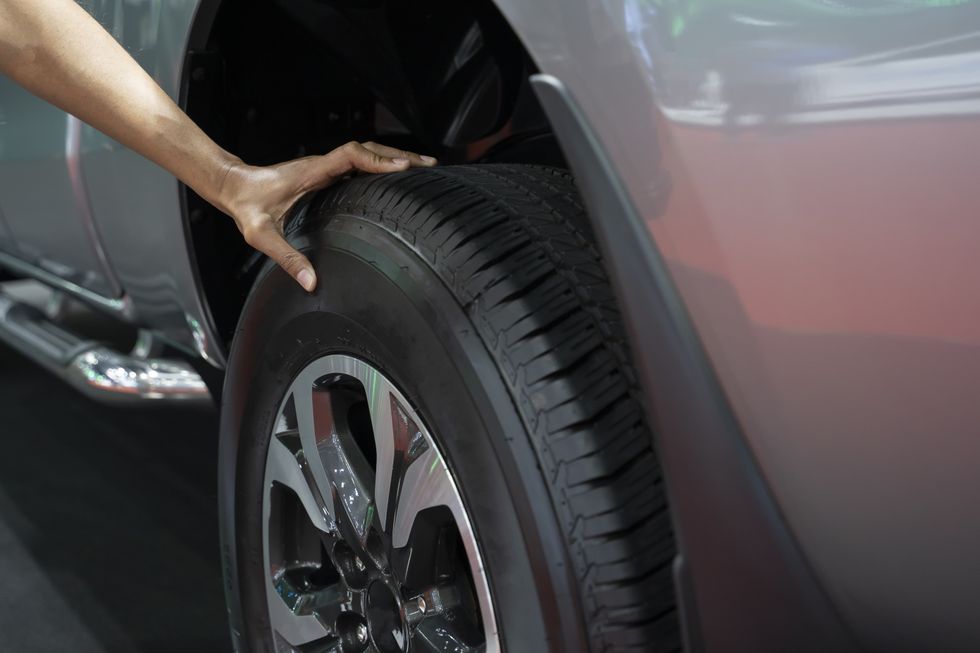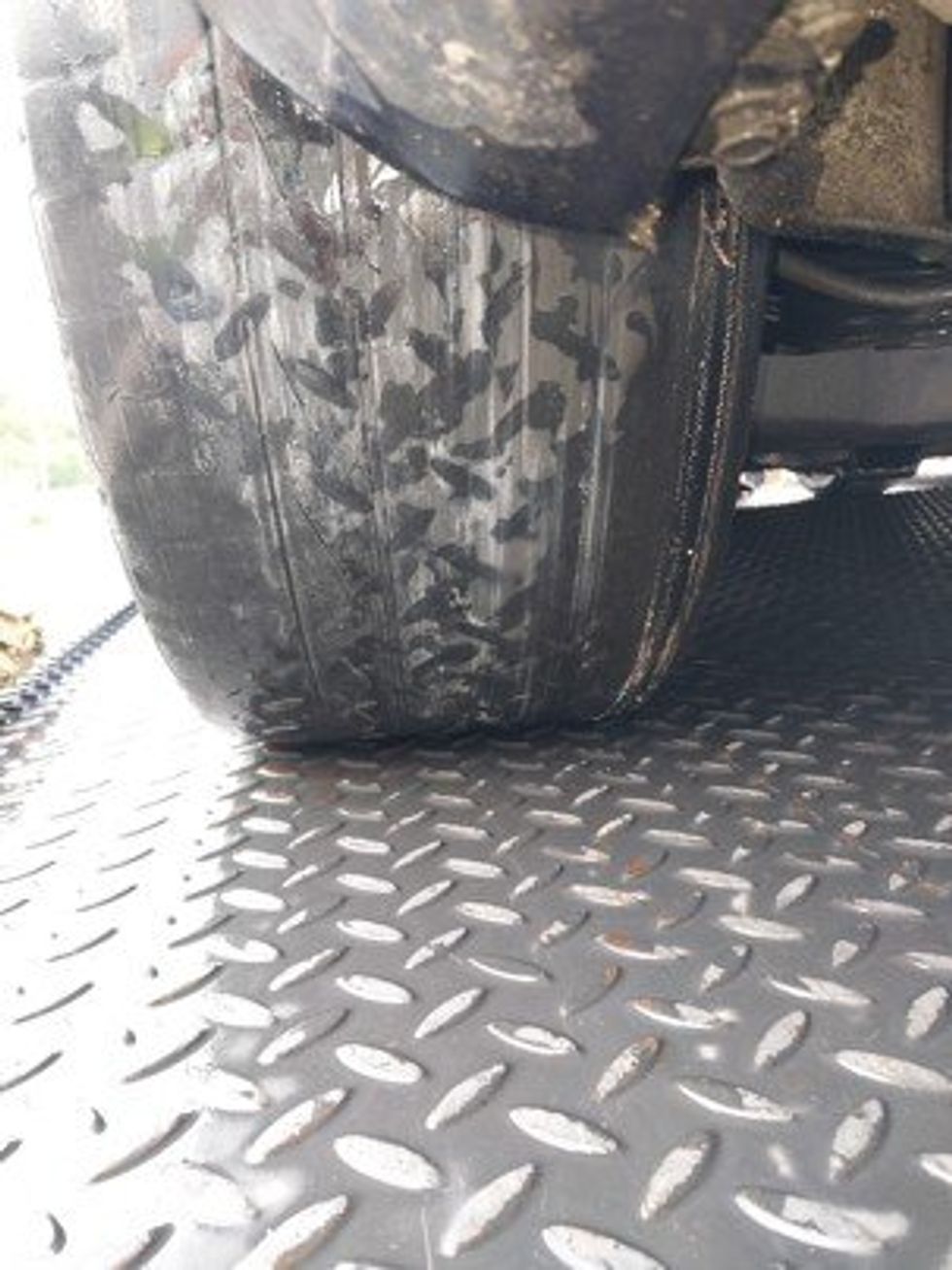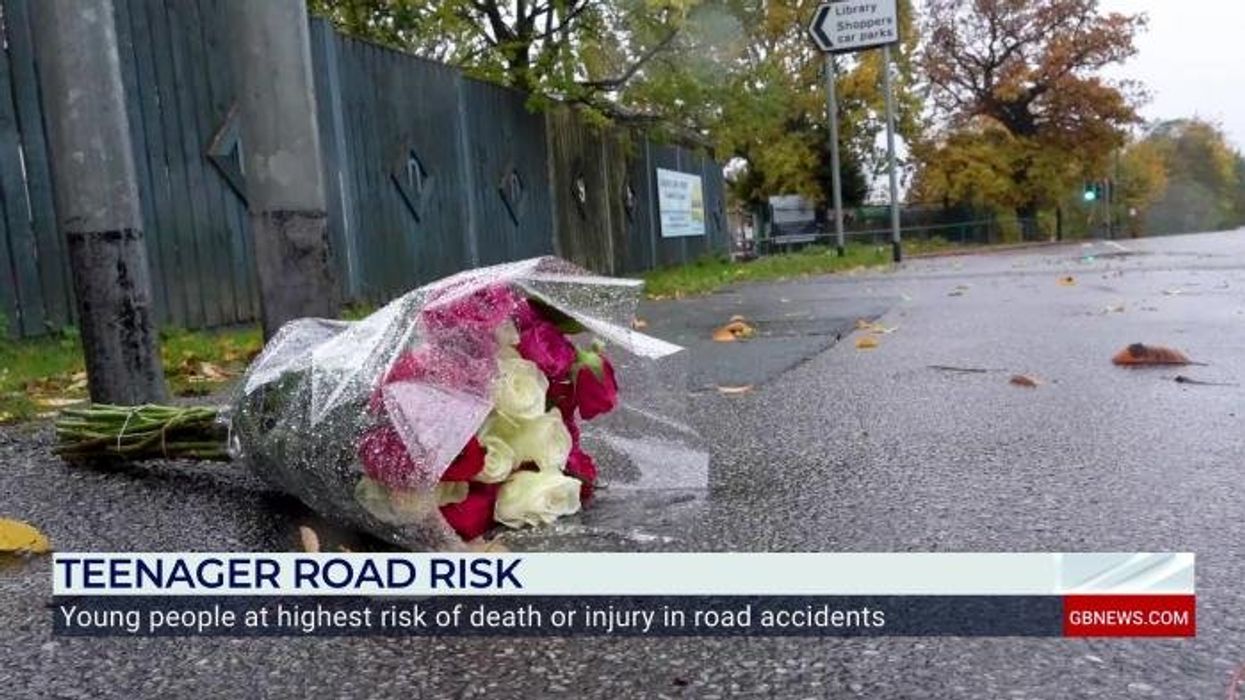Drivers face £10,000 fine for driving offences as millions risk road safety on major motorways

National Highways has urged drivers to ensure their car tyres meet the legal requirements
Don't Miss
Most Read
Motorists have been warned they could be slapped with penalties of up to £10,000 for driving with defective tyres while travelling on UK roads.
The warning follows reports that road deaths linked to tyre failures increased by nearly a third last year, prompting urgent action to prevent unnecessary fatalities.
Government figures revealed that 190 people died or were seriously injured in tyre-related incidents during 2023, rising from 147 casualties in 2022.
The stark increase has prompted urgent warnings from transport officials as National Tyre Safety Month launches this October.
TRENDING
Stories
Videos
Your Say
The report also recorded that on motorways and major A-roads alone, serious casualties rose from 22 to 25.
Under UK rules, the maximum penalty for driving with illegal tyres stands at £2,500 per tyre, meaning motorists with four defective tyres could receive the full £10,000 in fines alongside 12 penalty points on their licence.
New data found that approximately six million illegal tyres are currently on British roads, with one in four vehicles potentially operating with unsafe tyres.
The figures emerged from TyreSafe's comprehensive survey conducted with Imperial College London and National Highways, which analysed more than 549,000 tyres at replacement points.
 Drivers could be slapped with a £10,000 fine if their tyres are not up to standard | PA
Drivers could be slapped with a £10,000 fine if their tyres are not up to standard | PAResearch indicated that three-quarters of tyre defects in fatal collisions result from inadequate maintenance.
When tyres are replaced, 17 per cent are already illegal while 40 per cent are borderline, experts explained.
The problem spans all demographics, with only 46 per cent of motorists checking tyre pressures monthly as recommended.
Women are particularly affected, with 60 per cent checking less frequently than monthly guidelines suggest.
Students face heightened risks, with 41 per cent waiting for dashboard warning lights before inspecting their tyres.
Transport Minister Simon Lightwood has thrown his support behind the safety campaign, declaring that "safer roads are a top priority for this Government".

Drivers should ensure tyres remain in good condition while on the road
| GETTYLATEST DEVELOPMENTS:
- Major car brands recall 386,000 vehicles as drivers risk serious fires and crashes - BMW, Kia and more
- Electric cars nearing price parity with petrol and diesel as drivers can save 'thousands of pounds a year'
- Drivers could be banned from vital roads as Labour looks to block access for thousands during rush hour
He said that "not only is driving with defective tyres illegal, but it is also dangerous, especially as we move into the colder, wetter months".
But Colin Stevenson, Road Safety Information Lead for National Highways, warned that "tyres are the only part of your vehicle in contact with the road, and if they're excessively worn, underinflated or damaged, the consequences can be devastating".
He noted that "most drivers understand the dangers of using a mobile phone behind the wheel, but the risks posed by defective tyres are just as serious and often overlooked".
The officials stressed that "tyre safety isn't optional, it's critical" as autumn conditions increase hazards.
Tyre-related breakdowns reached 53,000 on motorways and major A-roads during 2024, representing the most common diagnosed cause and accounting for nearly one in five of all breakdowns.
National Highways data detailed how these incidents match the danger levels of mobile phone-related collisions.

The legal minimum tread depth for tyres in the UK is 1.6mm
|NATIONAL HIGHWAYS
Meanwhile, more than a fifth of motorists who experienced breakdowns on long motorway journeys believe proper tyre inspections beforehand could have prevented the incident.
The AA attended 620,000 tyre-related callouts in 2023.
Earlier this year, a driver on the M54 in the West Midlands lost control during wet conditions and crashed into barriers and fencing.
The motorist avoided serious injury, but National Highways Traffic Officers discovered severely worn rear tyres on the vehicle.
The legal minimum tread depth for tyres in the UK is 1.6mm across a continuous band covering the central three-quarters of the tread width and around the entire circumference.
Beyond insufficient tread depth, tyres become illegal if they display cuts exceeding 25mm or covering more than 10 per cent of the wheel's section width.
Bulges, tears and incorrect inflation pressures also render tyres unlawful.











